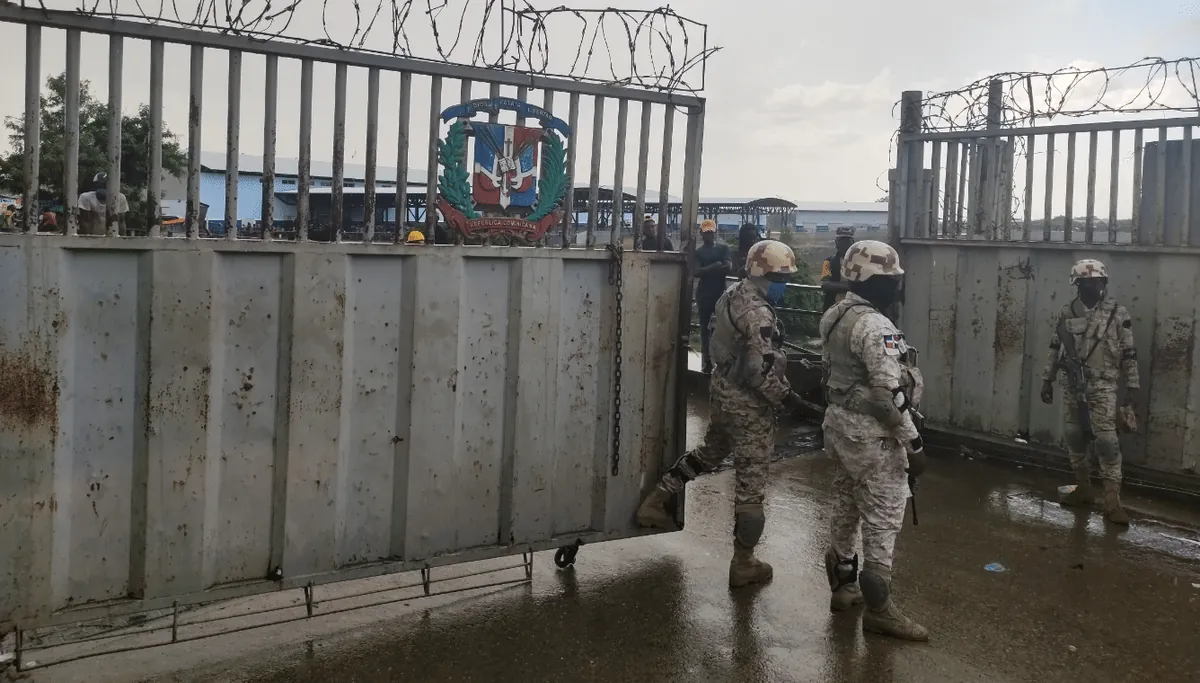The diplomatic tensions between Haiti and the Dominican Republic have escalated following the announcement of a new deportation policy by the latter. Dominique Dupuy, Haiti's foreign minister, has strongly condemned the Dominican Republic's plan to deport up to 10,000 migrants weekly, primarily affecting Haitians.
Dupuy expressed her disapproval on social media platform X, stating:
"The brutal scenes of roundups and deportations that we are witnessing are an affront to human dignity. We strongly condemn these dehumanizing acts and demand respect and justice."
This statement comes in response to the Dominican Republic's decision to significantly increase deportations of individuals residing in the country illegally. The policy, announced on September 30, 2024, marks a substantial rise from previous deportation rates.
The Dominican Republic, which shares the island of Hispaniola with Haiti, cites the ongoing crisis in Haiti as a source of crime and security issues within its borders. The two nations have a complex history, with Haiti occupying the western third of the island and the Dominican Republic the eastern two-thirds. This geographical proximity has led to longstanding migration issues and tensions between the two countries.
The United Nations has urged countries in the region to halt deportations of Haitians, emphasizing the dangerous situation they would face upon return. If the Dominican Republic meets its target, it could result in up to 520,000 deportations in a year, more than doubling the over 200,000 Haitians forcibly returned in 2023.
The scale of these deportations is particularly concerning given Haiti's current state. As the poorest country in the Western Hemisphere, with a GDP per capita of about $1,200, Haiti has faced numerous challenges, including political instability, natural disasters, and ongoing gang violence. The country is still recovering from a devastating earthquake in 2010 that killed over 200,000 people and has one of the highest deforestation rates globally, with less than 2% of its original forest cover remaining.
In contrast, the Dominican Republic has a more stable political system and a significantly larger economy, about seven times the size of Haiti's. Tourism plays a crucial role in the Dominican economy, contributing approximately 15% to its GDP. However, the country has historically relied on Haitian migrant labor, especially in agriculture.
The situation has sparked protests, with reports of Haitian construction workers demonstrating near Punta Cana, a popular tourist resort, calling for work permits to avoid deportation. This highlights the complex economic interdependence between the two nations despite their political differences.
William Charpentier, head of the Dominican Republic's National Bureau for Migration and Refugees, expressed concerns about the deportation process, stating to CNN:
"We understand that the government has every right to deport people who are in its territory without papers, but this right has a limit."
The current situation echoes past tensions, including a controversial 2013 court ruling in the Dominican Republic that stripped citizenship from many Dominicans of Haitian descent. Both countries have a history of political turmoil, including dictatorships like the Duvalier regime in Haiti and Trujillo in the Dominican Republic.
As the crisis unfolds, the international community watches closely. The United Nations, which has maintained various peacekeeping missions in Haiti since the 1990s, continues to play a role in addressing the country's ongoing challenges. The situation underscores the need for a balanced approach to migration issues that respects human rights while addressing security concerns.
